We recognize the constant need to make your appliances convenient on top of safe and secure. This also includes providing easily accessible outlets for your mini split unit. However, you could be unsure about whether you can safely plug your mini split into the outlet. Rest assured we've got the answers you need below!
You can certainly plug your mini split directly into an outlet. Of course, you must ensure first that your outlet has the right size to support the mini split.
A mini split unit with a small cooling capacity will require a 110 volts outlet. However, a mini split with a bigger capacity will need a 220 volts outlet size.
Stay with us! You will learn much about powering a mini split if you read this article until the end. We will walk you through the proper size of your outlet and breaker to run your mini split. We will also provide tips and precautionary steps to avoid overloading your socket. So that said, let's jump right into the details!
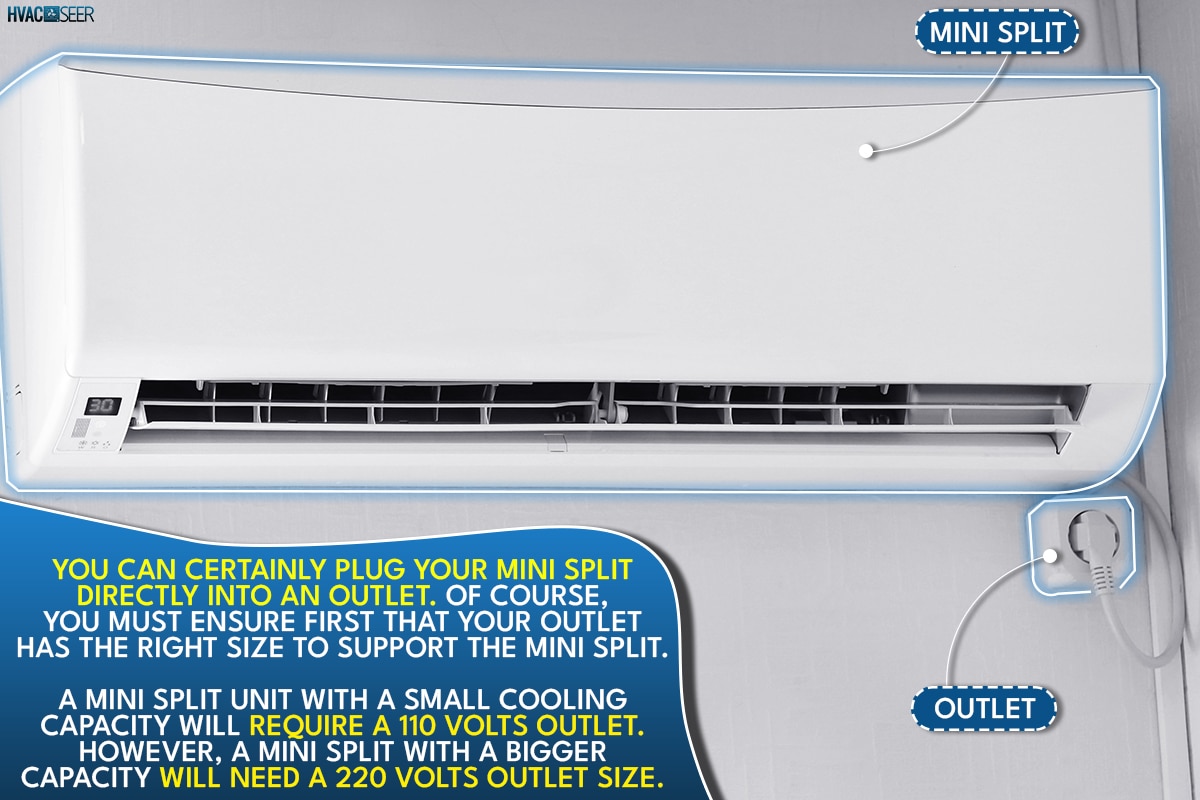
What BTU Size Of Mini Split Can A 110 and 220 Volts Outlet Handle?
Determining the right size electrical outlet before plugging your mini split AC is a critical thing to consider. You must ensure that your home meets the very minimal power requirements to safely start your mini-split unit.
Mini-splits with a cooling capacity of 12,000 BTUs or less in size can need a 110-volt socket. However, larger mini split units frequently need a 220-volt outlet to secure optimal operation. Your present electrical panel and outlets may need to be modified, depending on the size and quantity of mini-splits you intend to install.
How Much Current Does A Mini Split Use?
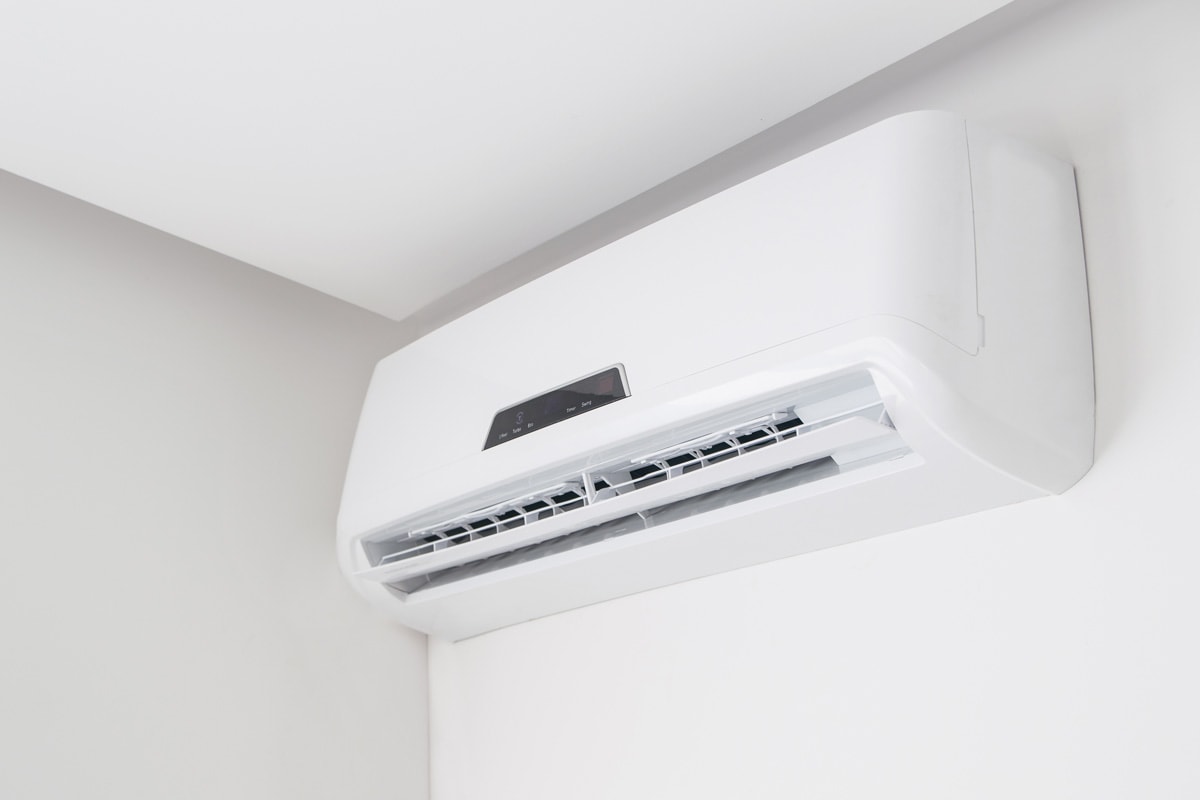
A mini-split system is no different from other electrical appliances that demand sufficient current to run properly. Knowing how much current your mini split system utilizes can reduce implications down the line.
The amount of current running in any electrical wire is measured by the standard unit name "ampere" or "amp." Also, your mini split system's amount of British thermal units or BTUs will also determine what ampere it has.
Today, the lower BTU mini split will essentially need 15 to 45 amps. Additionally, these amps should match your outlet wire size for greater functionality assurance.
How Do You Tell If The Outlet Is 15 Or 20 Amps?
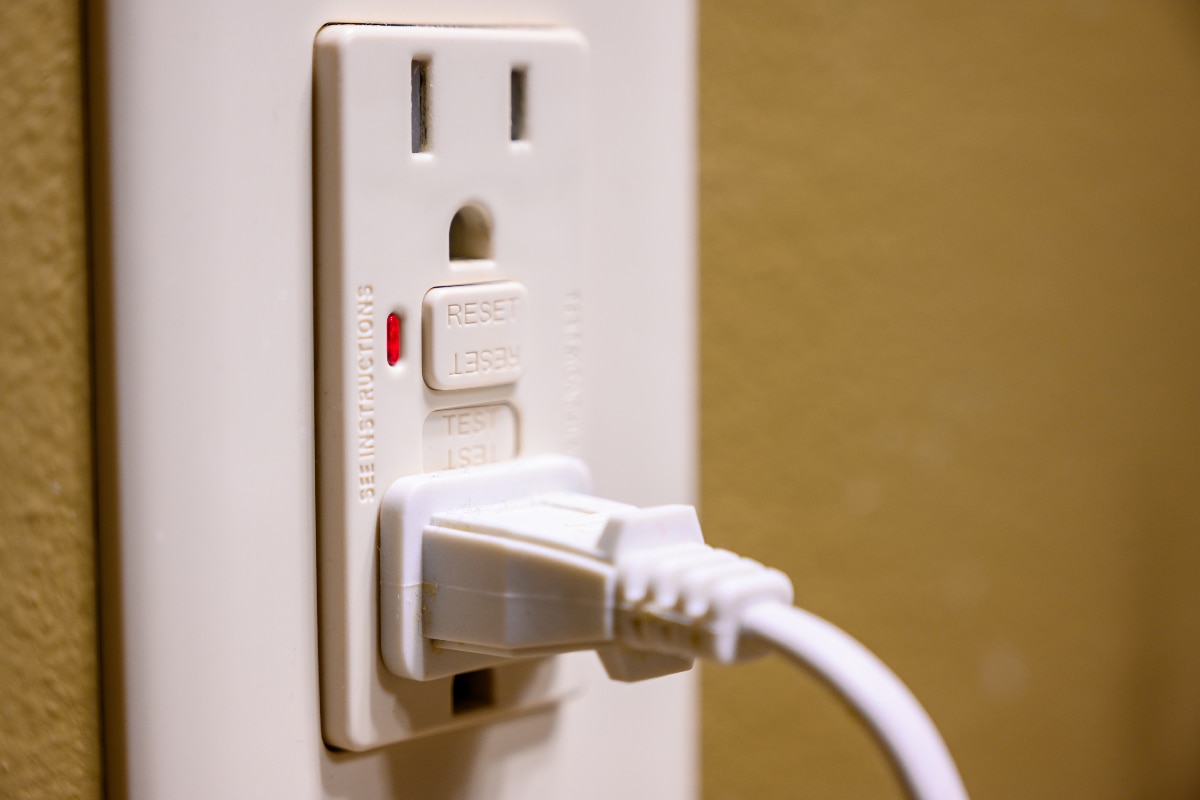
If you're unable to differentiate between 15-amp and 20-amp outlets for a home's electrical project. You can ask your electrician directly to help you recognize your outlet's accurate amps size.
Commonly, homeowners sometimes get confused or have no idea what amps your outlets run. Even so, there's a method to precisely tell your outlet's amps size whether you don't have enough electrical background.
A 15 amps outlet has two slots with a ground hole resembling in "U" shape. Although, 20 amp outlets have almost similar design to 15 amp outlets along with a ground hole. After all, it comes always with a fork or "T" like shape.
Just observe whether the vertical line hole has a crossover horizontal hole like "T" in it. Through that, you can easily and accurately tell that your outlet is 15 or 20 amps.
What Outlet Wire Size Do I Need For 220 Volts Mini Split?
Just plugging your mini split in your socket will not guarantee that it will always work the way you want it. You must consider as well other crucial considerations that might affect your socket's overall effectiveness.
Like outlet ideal wire size, it is vital to use the right size wire for your outlet. Using an improper wire size will have no good impact but compromise your entire house's safety.
The majority of 220V outlets require a 10 gauge wire or 2 mm diameter. Moreover, 10-2 copper wire can handle or support 40 amps of initial loads and 35 amps for a steady workload.
Get this electrical 10 gauge wire on Amazon.
What Will Happen If You Use Improper Outlet Wire Size?
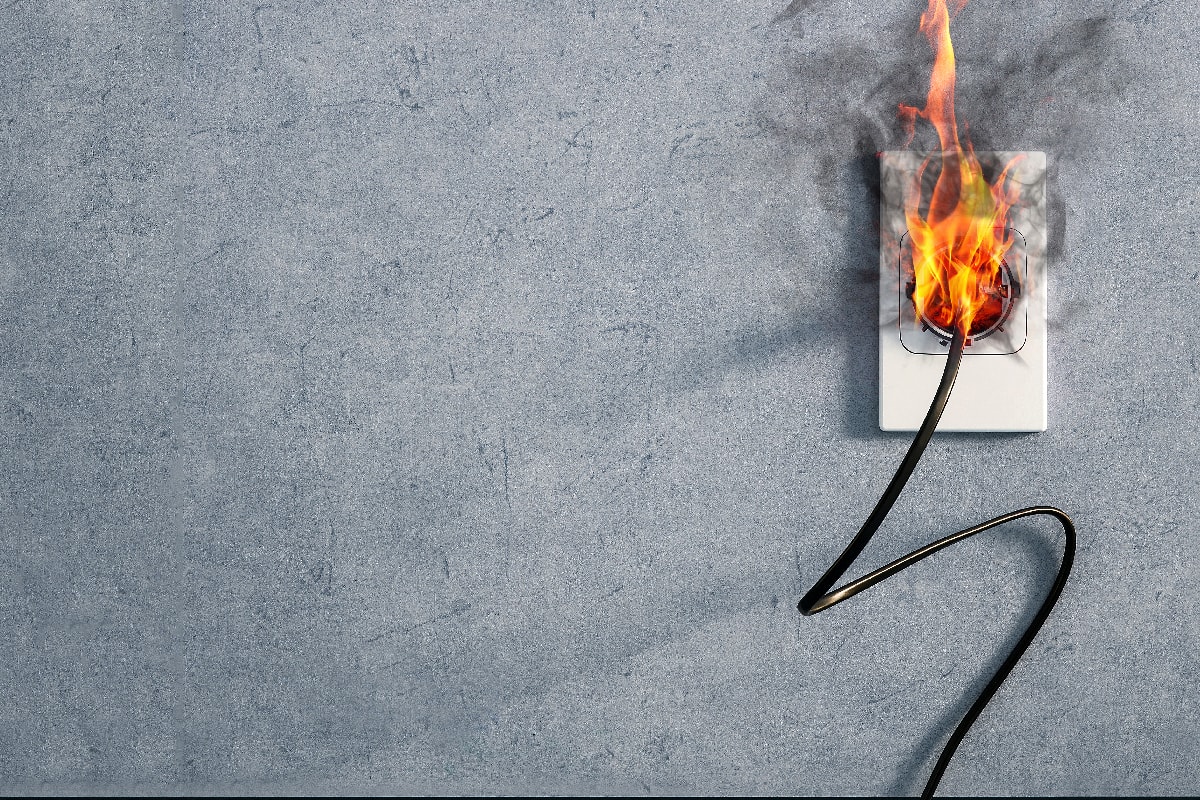
Installing an improper outlet size will not only damage your mini split but endanger your family's life as well. According to the report of the U.S Consumer Product Safety Commission or CPSC, outlets are the cause of 5,300 fire occurrences annually. This unfortunate incident leads to 40 fatalities and over 100 injuries.
Also, CPSC suggests that you must conduct proper check-ups in your outlets. If you continuously hear an unusual sound along a blinking light then likely your electrical connections need a replacement.
The expert recommends that an old house in particular will be subject to an inspection every 10 years. This is relatively the same in a new house because new houses are built with modern electrical systems.
Does Mini Split Need A Separate Circuit Breaker?
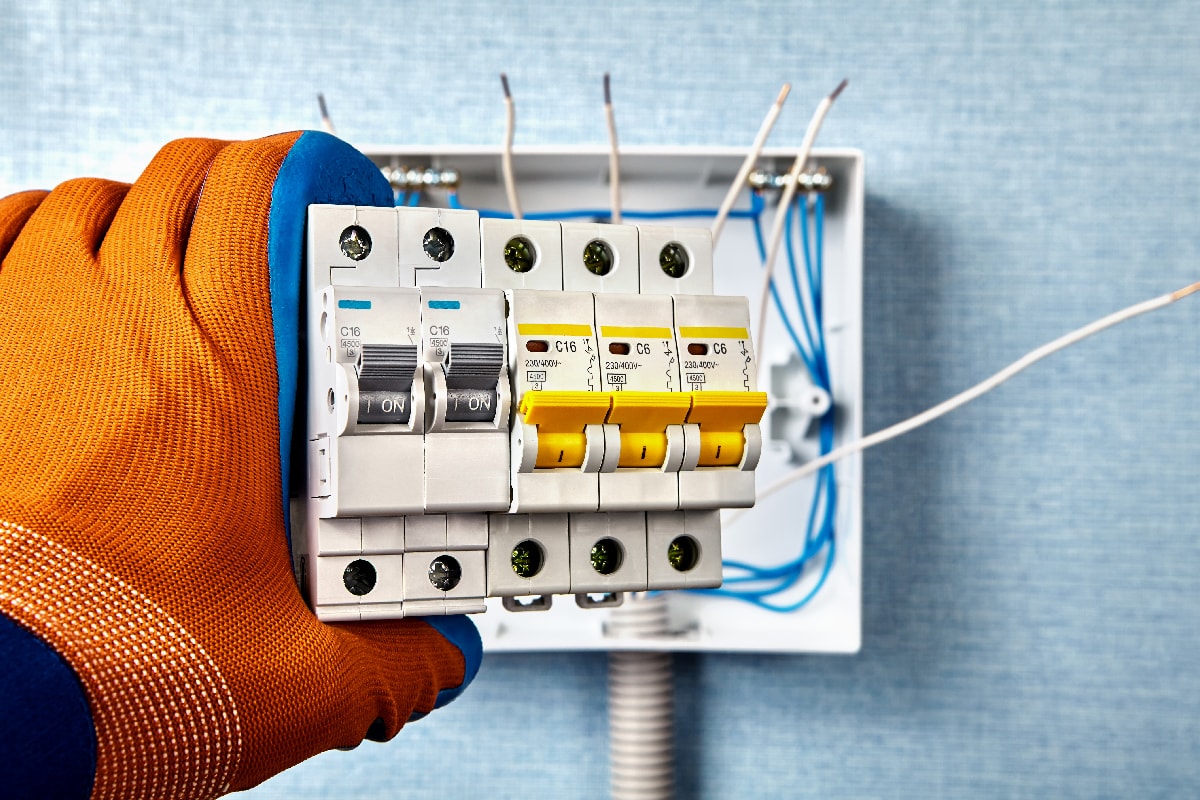
Since mini splits are electrically driven, a separate circuit breaker for its electricity line is necessary. You understand that, unlike a window AC unit, a mini split has outdoor units as well.
They should be connected directly to your house breaker panel. This is much safer than directly plugging your mini split into your socket.
What Size Breaker To Install For Your Mini Split?
Similarly to your outlet, the standard size specification for installing a power breaker is always critical for your mini split. Mini splits with a cooling capacity ranging from 24,000-60,000 BTU will need a 25 and 50 amps breaker.
Buy this dependable 25 amps size breaker on Amazon.
What's more, your mini split owner's manual contains all the necessary information you may need, including proper breaker size requirements. So it is best to check it before you install your breaker to ensure greater efficiency.
How Many Appliances Can You Safely Plug Into An Outlet?
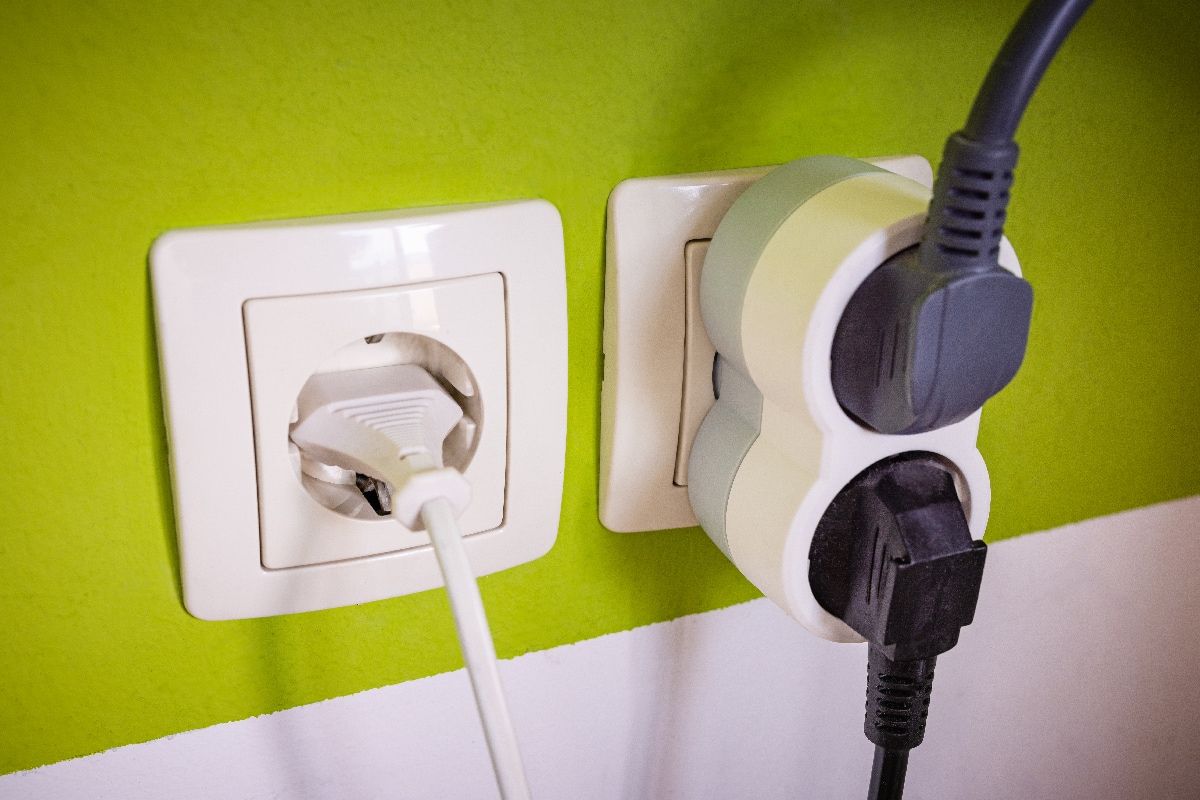
Plugging several appliances in one outlet isn't advisable. It is very risky as well, as mentioned earlier, it's alarming enough that fire outbreaks often involve your house outlets.
Never gamble the security and safety of your appliances, house, and especially your loved ones' lives by plugging multiple appliances into the outlet. Some advice is that you can only insert two appliances into an outlet.
Furthermore, your mini split is considered heavy-duty equipment. Therefore it essentially needs to be plugged into a separate outlet or even have its breaker to avoid overloading issues.
How Do I Know If My Outlet Is Overloading?
Homeowners need to be aware that not all of their home's outlets have the same workload ratings. Even if you follow our tips to plug only two appliances in one socket.
Over time, electrical wiring seems to be impossible to stop the wear and tear process. However, still, there are few early manifestations to tell that your outlet is facing an overloading issue.
Here we've tallied a few signs to alert you of an overloading issue:
- If your breaker constantly trips then it is reasonable enough to conclude that your outlet is overloaded.
- You may often observe that your lighting fixtures behave unusually in the form that it's always flickering.
- Also, in your outlets, you can visibly see that it is slowly changing its color.
- Sometimes overloading will cause your appliances to struggle to kick on, especially those notably old ones.
- It will create a bad burning odor; if you notice an odd smell in your outlet, most likely it's due to overloading.
- A very obvious sign is that your outlet will tingle you or makes a mild shock whenever you touch it.
Follow us below to learn how you prevent overloading your socket:
- Don't make a habit of plugging too many appliances into one outlet.
- Never use an extension socket or cords to run heavy-duty equipment or devices.
- Conduct regular general assessments of your electrical wiring.
- According to your electrician's evaluation, you may need to upgrade your wirings as necessary.
- Follow or apply the ideal wiring size in your outlet or circuit breaker.
- And lastly, follow all our precautionary measures in the previous topics aside from these signs and tips.
Caution! The electrical concern is very dangerous! If you lack electrical knowledge, we urge you to call your electrician and perform these preventative steps we've shared with you.
To Wrap Things Up
We cannot overemphasize the risk of dealing with electrical issues in your home. No matter how much you ensure your mini split operational efficiency by plugging it directly into your socket.
Remember that only a certified electrician can guarantee quality wires or a high-performing outlet you can use. So follow always our detailed explanation about this article to ensure your or your family's overall safety.
If you want to learn our other helpful article relating to this one, read these posts below!
Can You Have An Outlet Above A Baseboard Heater?
Can You Plug A Portable Air Conditioner Into A Regular Outlet?


